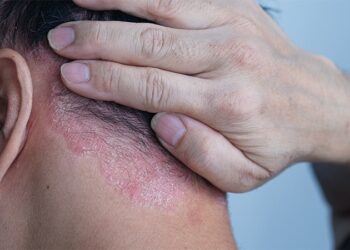MANCHESTER, England — The risks for infection are broadly similar regardless of the biologic or targeted synthetic disease-modifying drug used to treat inflammatory arthritis, but different patterns of infection do exist across these advanced therapies, delegates were told at the recent British Society for Rheumatology (BSR) 2025 Annual Meeting.
“There are so many advanced therapies, and they’re all very good from an efficacy or effectiveness side of things. So now treatment decisions are more about cost, infection, or comorbidity profiles,” Mark Russell, PhD, an academic clinical lecturer at the Centre for Rheumatic Disease, King’s College London, England, told Medscape Medical News.
He said that some of the differences in infection safety profiles with advanced therapies included an “increased risk for fungal infections with IL [interleukin]-17 inhibitors and shingles with JAK [Janus kinase] inhibitors,” compared with tumor necrosis factor (TNF) inhibitors.
However, “whereas TB [tuberculosis] used to be an issue with TNF inhibitors, it’s not really an issue after screening. It will probably be the same for JAK inhibitors when we start using the shingles vaccine more widely in the younger population,” Russell said.
Rising Use of Advanced Therapies
In addition to presenting a comprehensive overview of the infection risks associated with newer biologics and small molecules at the meeting, he presented data separately showing that there had been a 62% increase in the use of biologics or small-molecule targeted therapies for various indications over the past 5 years in England. He also showed that around half a million people in England, or 1% of the total population, were prescribed a biologic or targeted therapy in 2025 for any immune-mediated inflammatory disease, which included inflammatory bowel disease and inflammatory arthritis, among others.
Infection Risk Across Biologic Classes
Some of the different types of infection across biologic drug classes highlighted by Russell were an increased risk with IL-6 inhibitors for cellulitis, diverticulitis, diverticular perforation, and erysipelas (a type of skin infection involving the dermis layer), compared with TNF inhibitors.
Also, rituximab has been associated with higher rates of lower respiratory tract and lung infections than TNF inhibitors, as well as greater incidences of sepsis, bacteremia, viremia, and fungal infections.
Higher rates of Candida infections have been reported for the IL-17 inhibitors secukinumab, ixekizumab, and, in particular, bimekizumab, which inhibits both IL-17A and IL-17F vs TNF inhibitors.
JAK inhibitors are known to raise the risk for herpes zoster by a substantially greater extent than TNF inhibitors. In the ORAL Surveillance trial of tofacitinib vs the TNF inhibitors adalimumab or etanercept for patients with rheumatoid arthritis, the rate of zoster infection was about 12% with either high- or low-dose tofacitinib compared with 4% for TNF inhibitors. Incidence of herpes zoster was 3.75 per 100 patient-years for tofacitinib 5 mg twice daily and 3.94 per 100 patient-years for tofacitinib 10 mg twice daily compared with 1.18 per 100 patient-years for TNF inhibitors.
The tyrosine kinase 2 (TYK2) inhibitor deucravacitinib, which is approved to treat plaque psoriasis and is in development for psoriatic arthritis and lupus, as well as other TYK2 inhibitors in development, has shown “a pretty bland” infection profile, depending on whether COVID-19 data are included, Russell said. However, “there does appear to be a risk for acne and folliculitis with TYK2 inhibitors, certainly in some smaller studies,” he said, although it is unclear why this is the case.
Explaining and Mitigating Risk
What is “really important” is how infection risk is communicated to patients, Russell said. “Remembering relative vs absolute risk. So, a drug has a 50% increased risk of infection, or it increases your risk by only one in 1000; it’s really important how you frame that.”
Other factors that are “much more influential” than use of advanced therapies should also be studied for predicting future infection risk, he said, such as age, prior infection (particularly if hospitalization occurred), steroid use, and lymphopenia.
Mitigation strategies include TB screening for everyone (irrespective of which advanced therapy was being considered), vaccination, and Pneumocystis jirovecii pneumonia prophylaxis for patients at risk, such as those who may be taking rituximab with steroids and have low immunoglobulin levels.
Russell had received research support from Sandoz UK. In addition, Russell reported receiving honoraria from AbbVie, Biogen, Lilly, Galapagos, Menarini, UCB, and Vifor Pharma, and support for attending educational meetings from Lilly, Pfizer, Janssen, and UCB.
Sara Freeman is a medical journalist based in London, England.
Source link : https://www.medscape.com/viewarticle/infection-patterns-matter-selection-advanced-therapies-2025a1000ces?src=rss
Author :
Publish date : 2025-05-16 11:49:00
Copyright for syndicated content belongs to the linked Source.














